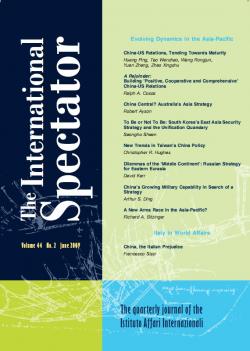The International Spectator, Vol. 45, No. 1, March 2010

31/03/2010
Special core on Managing International Financial Instability
Is the Larosière Proposal on European Financial Regulation on the Right Path? Free
Recent Publications Free
-
Issue
45/1


